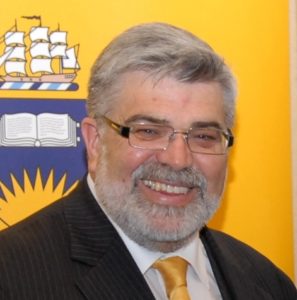 Federal grants announced this week will fund a joint university initiative that aims to boost participation in tertiary education by lower socio-economic status and Indigenous students across South Australia.
Federal grants announced this week will fund a joint university initiative that aims to boost participation in tertiary education by lower socio-economic status and Indigenous students across South Australia.
Senator Kim Carr, Minister for Higher Education (pictured), announced $9.2 million of funding under the Higher Education Participation and Partnerships Program (HEPPP) for a collaborative project between Flinders, the University of Adelaide and the University of South Australia.
The grant is part of the latest round of HEPPP grants which saw $50 million of funding go to 17 institutions nationally.
Flinders University Vice-Chancellor Michael Barber welcomed the Federal Government’s support for the scheme
“Collaboration between South Australia’s three universities was key to the success of the proposal,” Professor Barber said.
“The three universities recognised that a collaborative approach was the most effective way of increasing participation across the State, and we have co-operated closely since the early planning stages of the bid. The program will draw on outreach initiatives of all three institutions, and our collaboration will continue throughout its delivery.”
“Flinders will be a partner in rolling out a State-wide program that will see university students take an active role in high schools, assisting secondary students from non-traditional tertiary backgrounds to persist in and succeed with their studies and encouraging them to consider higher education as an option.”
The new scheme, part of which is modelled on Flinders’ successful Inspire Peer Mentoring program, will employ mentoring, leadership training and additional tuition to address skills and knowledge gaps and thereby boost participation rates. The scheme will also involve TAFE SA.
Professor Barber said he endorsed Minister Carr’s comments that access and equity to education do not mean a trade-off in quality.
Senator Carr said that the Government is committed to achieving a national target of 20 per cent of undergraduate students coming from a low SES background by 2020.
Flinders University currently draws 23 per cent of its students from lower SES backgrounds.
’This funding allows universities to partner with a range of schools and other organisations to support and encourage our most disadvantaged young people to achieve a university degree, which in turn opens the door to high-wage, high-skill careers,” Senator Carr said.

